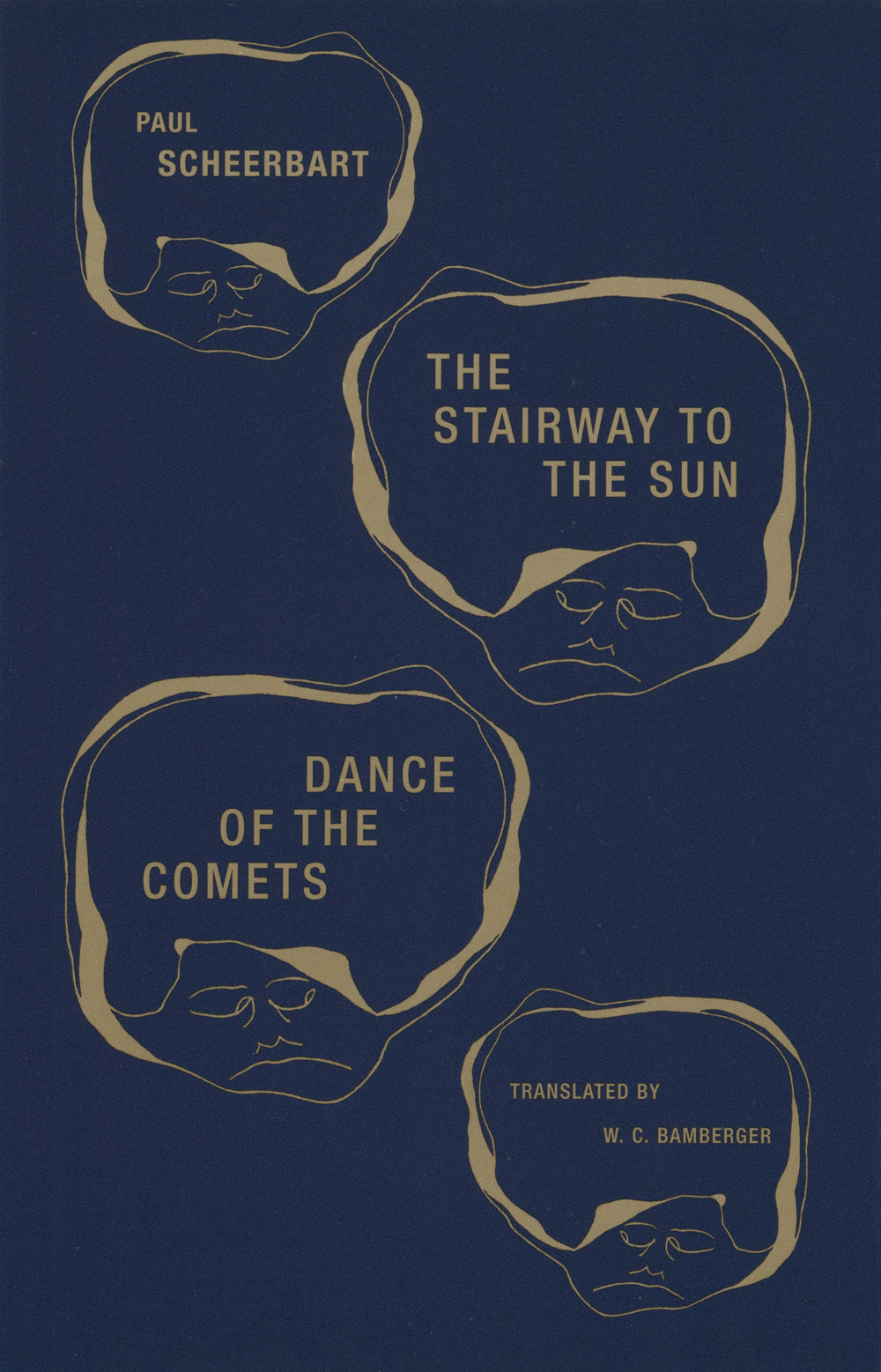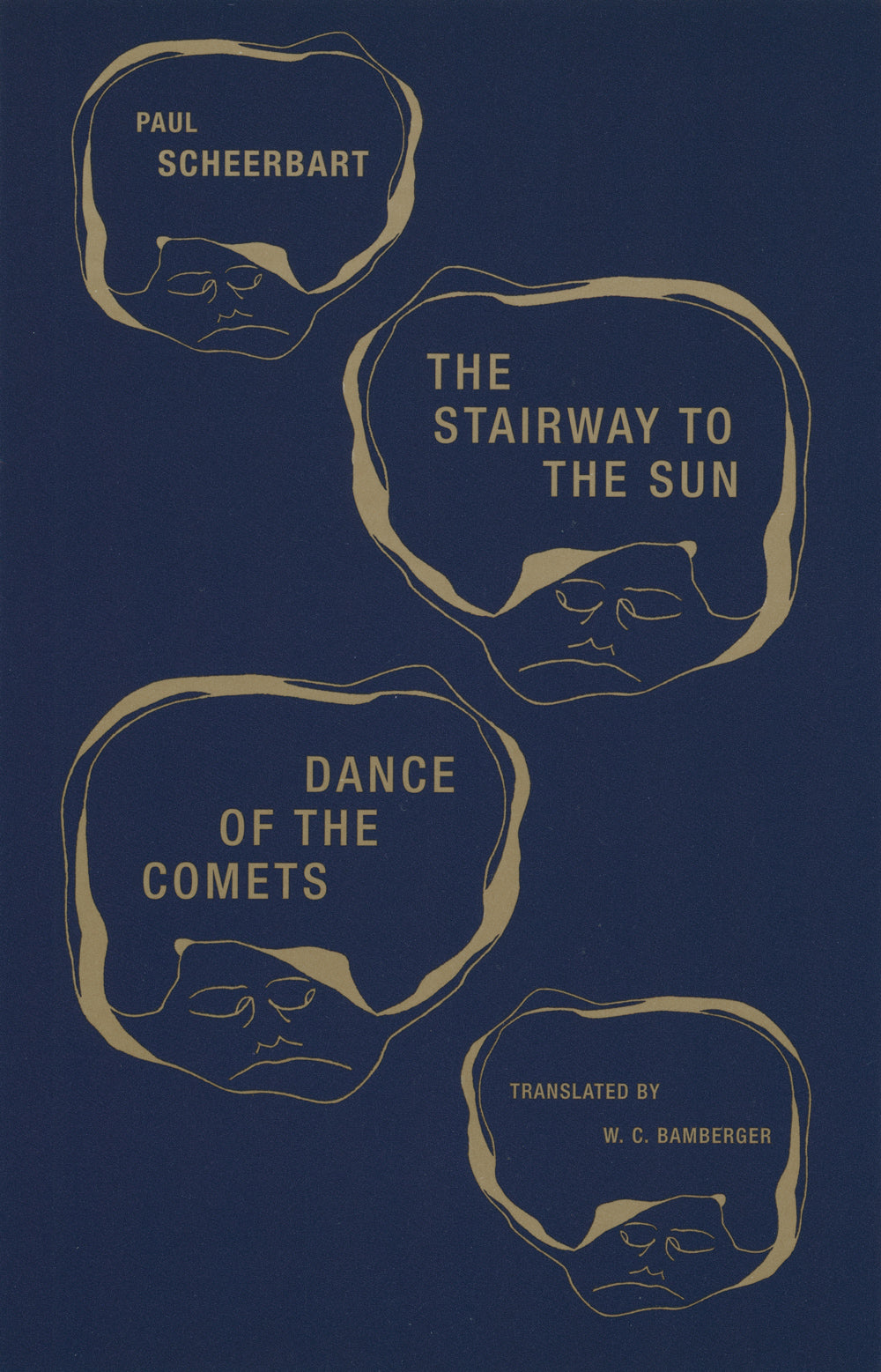The Stairway to the Sun & Dance of the Comets
The Stairway to the Sun & Dance of the Comets
Paul Scheerbart
Couldn't load pickup availability
The Stairway to the Sun & Dance of the Comets: Four Fairy Tales of Home and One Astral Pantomime / Translated, with an introduction, by W. C. Bamberger / October 2016 / 4.5 x 7, 128 pp. / 978-1-939663-21-4
The Stairway to the Sun & Dance of the Comets brings together two short books, originally published in 1903, by the anti-erotic godfather of German science fiction, Paul Scheerbart. The Stairway to the Sun consists of four fairy tales of sun, sea, animals, and storm, each set in a different, fantastical locale: from the giant fever-dream palace of an astral star to a dwarf’s glass underwater lair in the jellyfish kingdom. Scheerbart’s sad, whimsical tales provide gentle, simple, though unexpected morals that outline his work as a whole: treat animals as one would treat oneself, mutual admiration will never lead to harm, and if one is able to remember that the world is grand, one will never be sad in one’s own life.
Dance of the Comets, though published as an “Astral Pantomime,” was originally conceived as a scenario for a ballet, and one that Richard Strauss had planned to score in 1900 (and which Gustav Mahler even accepted for the Vienna Opera). Though the project was never realized, Scheerbart’s written choreography of dance, gesture, costume, feather dusters, violet moon hair, and a variety of stars and planets outlines a symbolic sequence of events in which everyone—enthusiastic maid, temperamental king, indifferent executioner, foolish poet—seeks, joins, and in some cases, becomes a celestial body: a “dance” toward higher aspirations and a staging of Scheerbart’s lifelong yearning for a home in the universe.
Paul Scheerbart (1863–1915) was a novelist, playwright, poet, newspaper critic, draftsman, visionary, proponent of glass architecture, and would-be inventor of perpetual motion. Dubbed the “wise clown” by his contemporaries, he opposed the naturalism of his day with fantastical fables and interplanetary satires that were to influence Expressionist authors and the German Dada movement, and which helped found German science fiction. After suffering a nervous breakdown over the mounting carnage of World War I, Scheerbart starved to death in what was rumored to have been a protest against the war.
Press
“[A] prism encapsulating Scheerbart’s obsessions and magnifying his (already pronounced) eccentricities […] Scheerbart emerges as a figure who not only sought to incorporate art into daily life, but who also sought to fuse science and art—turning the ascetic, objective, and technical pursuit of scientific knowledge into a cultural production of humankind’s own shimmering transcendence.”
—Amanda DeMarco & Daniel Liu, Los Angeles Review of Books


